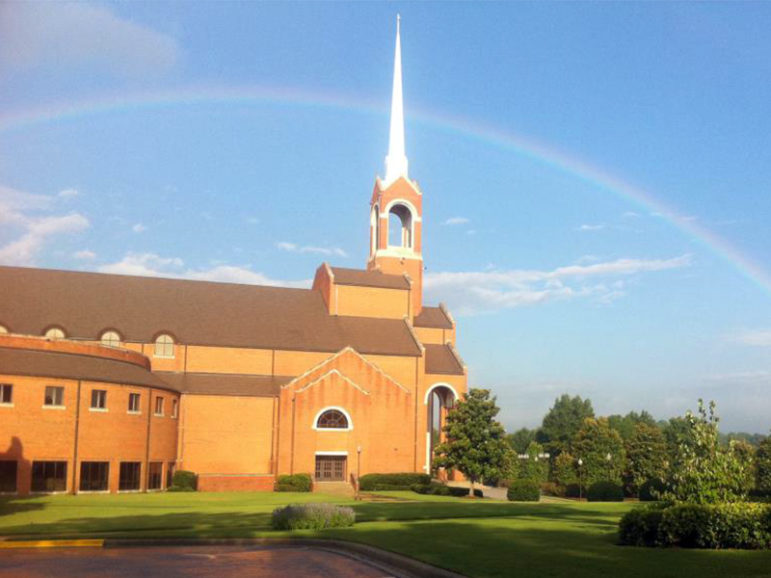(RNS) An Alabama Presbyterian church may soon become the first in the nation to form its own police force, invested by the state with the rights of “regular” police.
Officials at Briarwood Presbyterian Church, which belongs to the smaller and more conservative of the nation’s two major branches of the denomination, say their church, with 4,100 congregants and a 2,000-student school, needs the protection of a church-run police force.
Hiring local police, as many congregations do, isn’t the best option for Briarwood, they say, because it often needs more officers than local departments can provide. They also cite as a cautionary tale the 2012 Sandy Hook massacre, in which a gunman fatally shot 20 first-graders and six staff members in a Connecticut public school.
“After the shooting at Sandy Hook and in the wake of similar assaults at churches and schools, Briarwood recognized the need to provide qualified first responders to coordinate with local law enforcement who so heroically and effectively serve their communities,” they said in a statement.
The state Senate voted 24-4 Tuesday (April 11) to give Briarwood, located 10 miles south of downtown Birmingham, permission to hire its own police. The measure now goes to the House, and if it passes there as expected, it will go to Gov. Kay Ivey for her signature. Ivey, who was sworn in this week after the sudden resignation of Robert Bentley, did not immediately return calls Thursday about the Briarwood bill.
The bill’s critics, including the state’s branch of the ACLU, fault the church and the Senate for blurring the line separating church and state and call the bill an affront to the Constitution’s establishment clause that would not hold up if challenged.
“The proposal to authorize Briarwood Presbyterian Church to form its own police force places a core governmental function, with all the powers of the state, into the hands or a religious institution to exercise at its discretion with no governmental oversight,” said Randall C. Marshall, legal director of the ACLU of Alabama.
“It also singles out one particular church out of the thousands of churches, synagogues, mosques, and other religious entities in Alabama that may have similar concerns, thereby favoring one specific religious group,” Marshall said.
The church, however, likens its proposed police force to those of several Alabama colleges and universities, which are also state-sanctioned.
The bill has attracted the attention of Muslim comedian and commentator Dean Obeidallah, who notes the death threats sent to Alabama mosques recently, and the state’s ban of shariah, or Islamic law — a measure opponents called unnecessary and Islamophobic.
Churches have a right to be safe, Obeidallah wrote. “But do you think if Muslims in Alabama asked to create their own police force to protect their mosque we would see the GOP members of the Alabama Legislature be as supportive as they are to the Briarwood church?”





